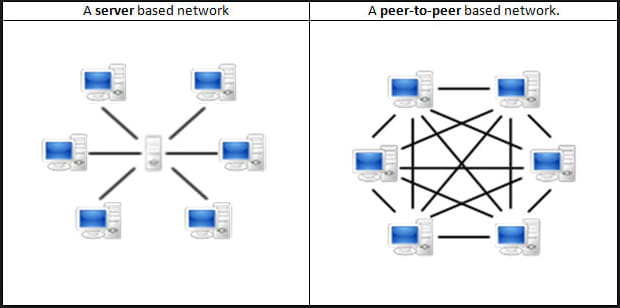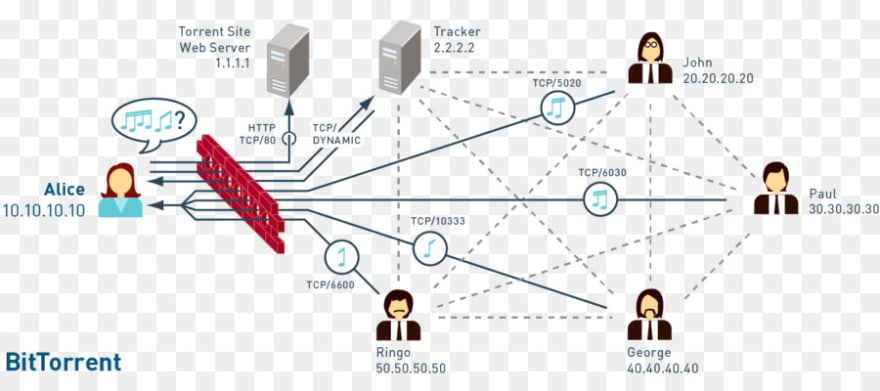My Experience
Ever since I started using computers and the internet, I can clearly remember knowing about this thing called piracy. My initial experiences with it came as a child using LimeWire to download music for free without knowing that what I was doing was illegal and had dangerous consequences. Luckily, my journey as an online pirate came to an abrupt end after being grounded for loading the family computer full of viruses. Thinking back on that time, I knew that I was downloading files through the internet, but I had no idea what exactly was happening in the background. I do know now of certain key words related to piracy like "torrent" and "p2p", but my knowledge on the topic is still very minimal, which is why I wanted to explore it a bit more.
What is Online Piracy?
Online piracy is essentially the unauthorized copying, distributing, and selling of licensed and copyrighted materials from the Internet. Whether you are the one who is uploading this type of material or the one who is downloading it, anyone that participates in this action is at fault and liable for their actions. The three most common forms of online piracy are music, software, and movie. For the majority of people who partake in online piracy, their main goal is to obtain goods that they would usually pay money for for free. One piece of information to consider is if it is a digital file, it can be pirated.
How Does it Work?
So how exactly does pirating work? There are actually a couple different methods, but the most popular involve what is known as peer-to-peer(p2p) file sharing. A peer is anyone that is involved in the sharing of files between one another. LimeWire was an example of a traditional p2p program. Like the name states, these programs allow users to share their files with other users. In the case of LimeWire, users would upload and download full files through digital transmission, which were oftentimes full of viruses (I wish I've known about this sooner). Nowadays, these traditional programs have been deprecated for the use of torrents and BitTorrent.
What is a Torrent?
I guess the next step is to elaborate on what a torrent is. Unlike traditional programs where you would share full files, you can now create a torrent file which stores metadata or pieces of those files. These torrents can be considered as the keys to initiating the download of the actual content. By using a BitTorrent client, users are able to then unpack the pieces of data included in the torrent file, which are then reassembled to create the original file.
BitTorrent
The sharing of information between individuals also becomes much faster with the introduction of torrents and the BitTorrent protocol. When creating a torrent, a tracker is added along with the file. This tracker acts as a server that provides new peers with a list of peers that have already downloaded or are downloading individuals files included in the torrent file. The BitTorrent client then uses the tracker as a server to talk to those peers in the list and begins to download pieces of the torrent file through multiple people at once. Simply speaking, torrent files include separate parts that make up the whole content. Users are able to download the parts that they don't have through those that do, while simultaneously sharing the parts that they do have with other peers, making the process much faster and more efficient. Common terminology used for peers are seeders, those that are uploading data, and leechers, those that are downloading data. People using this method to pirate will most likely be doing both actions at the same time. The image below illustrates this whole process. Individual members of the Beatles(peers) each have parts of a song(parts of a torrent file) that are downloaded and then put together to produce the full song(torrent file). It is really interesting to read about all the negative connotations surrounding torrenting, since it is mainly used for piracy. However, not all torrents are illegal and I do see the benefits of using p2p file sharing for legal purposes.
Dangers
After doing research on this topic, I can see why online piracy might be appealing to some, because in all honesty, it isn't very hard to do. Although I wouldn't recommend it, because there are actual dangers and consequences associated with partaking in piracy. Not only can it get you into a lot of legal trouble, but the act of sharing data across the internet with unknown peers puts you at risk for getting personal information about you stolen. Despite these risks, if you still want to dabble in file sharing, I would recommend learning more about it and probably using a VPN to have some sort of security.










Top comments (0)